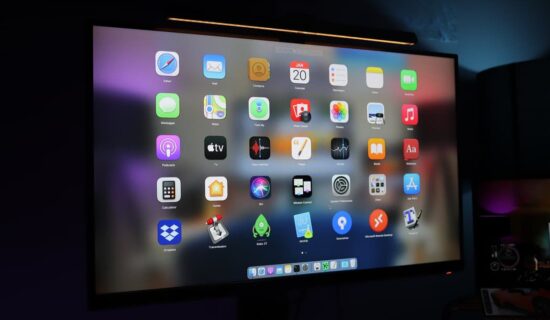Mobile app development has revolutionized the way we interact with technology and has become an integral part of our daily lives. From communication and entertainment to productivity and health, mobile apps have transformed various industries and continue to evolve at a rapid pace. As we look towards the future, several trends and predictions are shaping the landscape of mobile app development.
5G Connectivity and Enhanced Speeds:
One of the most significant advancements in mobile technology is the widespread adoption of 5G connectivity. With faster download and upload speeds, reduced latency, and increased capacity, 5G will transform the capabilities. This technology will enable developers to create more immersive and data-intensive applications, such as augmented reality (AR) and virtual reality (VR) experiences, high-definition video streaming, and real-time multiplayer gaming. 5G will also facilitate the seamless integration of IoT (Internet of Things) devices with mobile apps, creating a connected ecosystem of smart devices.
Artificial Intelligence (AI) and Machine Learning (ML):
AI and ML technologies have already made their mark in the world, but their influence is expected to grow even further. AI-powered chatbots and virtual assistants have become commonplace, offering personalized and interactive experiences. In the future, AI and ML algorithms will enable apps to provide highly tailored recommendations, predictive analysis, and enhanced security features. Developers will leverage his to automate development processes, making it easier to create intelligent and intuitive user interfaces.
Internet of Things (IoT) Integration:
They will play a vital role in managing and interacting with these IoT devices. Whether it’s controlling home automation systems, monitoring health and fitness trackers, or managing smart cities’ infrastructure, they will serve as the central hub for IoT integration. Developers will focus on creating seamless experiences, allowing users to control and monitor their IoT devices effortlessly.
Progressive Web Apps (PWAs) are web-based applications that offer a native app-like experience on mobile devices. PWAs combine the best of both worlds by leveraging web technologies and providing features like offline access, push notifications, and device hardware integration. They eliminate the need for users to download and install traditional from app stores, reducing storage requirements and offering a streamlined user experience. As PWAs continue to mature, they will become an attractive alternative for developers looking to reach a broader audience without the constraints of native app development.
Enhanced Security and Privacy Measures:
As they handle increasingly sensitive data, security and privacy will remain a top priority. They will implement robust encryption techniques, secure authentication methods, and adopt privacy-focused practices like data minimization and anonymization. With the advent of biometric authentication methods like facial recognition and fingerprint scanning, users can expect enhanced security measures to protect their personal information. App stores will also impose stricter guidelines to ensure the security and privacy of users, reinforcing the trust and confidence.
AR and VR technologies have gained significant traction in recent years, and their integration will continue to expand. Mobile games will become more immersive, allowing players to interact with virtual environments in real-time. AR will revolutionize industries like retail, enabling users to try on virtual clothes or visualize furniture in their homes before making a purchase. Similarly, educational apps will leverage AR and VR to provide interactive and engaging learning experiences.
Cross-platform Development:
The demand for apps across multiple platforms will continue to rise, making cross-platform development frameworks more popular. This approach streamlines the development process, reduces time and cost, and ensures consistent user experiences across different platforms. Platforms like React Native, Flutter, and Xamarin will continue to evolve.
In conclusion, the future development looks incredibly promising, with various trends and predictions set to shape the industry. As technology advances, developers must adapt and embrace these trends to create innovative and user-centric mobile app experiences that cater to the ever-evolving needs of users.
Mobile app gamification is a strategy that incorporates game elements and mechanics into non-game applications to enhance user engagement and motivation. By integrating elements such as points, badges, leaderboards, and rewards, they can transform mundane tasks into enjoyable experiences, encouraging users to stay connected and actively participate.
One of the key benefits is its ability to foster user engagement. By introducing challenges, levels, and milestones, mobile apps can users with a sense of progression and accomplishment. Leaderboards, for example, allow to compare their achievements with friends or a wider community.
Moreover, she can leverage social elements. By integrating features like social sharing, collaborative gameplay, and interactive challenges, mobile apps can create a sense of community and facilitate connections among users.
In addition to engagement, she can also drive desired user behaviors. For instance, by rewarding users for completing specific actions or reaching certain milestones, they can encourage users to perform desired tasks more frequently.
The game elements should align with the overall purpose and functionality of the app, and should not overshadow the core features. Excessive gamification can lead to a shallow user experience and may result in users losing interest over time.


